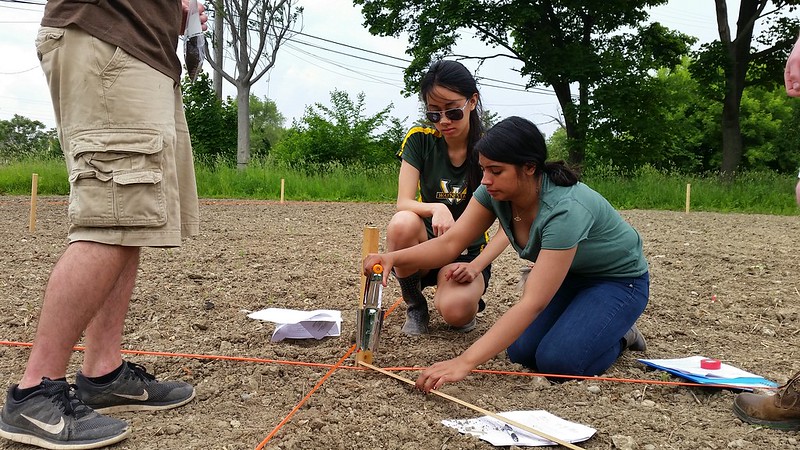National Institute of Food and Agriculture grant aims to assure food safety in Detroit's gardens

Urban gardens are becoming more commonplace across Detroit and other major urban cities throughout the United States.
These gardens offer a source of free or inexpensive healthy food for the public and educate community members about food production and rehabilitating the local ecosystem.
The revolution of urban agriculture has the potential to address many economic, environmental and personal health issues.
And with urban agriculture gaining popularity for improving local and sustainable food systems, the question of food safety has become a growing concern.
To ensure the safety and sustainability of this food supply, there is a need for more information on physical, chemical and biological contamination in urban agricultural environments, particularly contaminants such as heavy metals, antibiotics, pesticides, foodborne bacteria and more.
A team of researchers led by Wayne State University has recently launched an initiative to determine the prevalence of contaminants in urban agriculture soil in Detroit, establish linkages among the contaminants and identify the agricultural risk factors for the contamination.
The team was recently awarded more than $293,000 from the National Institute of Food and Agriculture of the United States Department of Agriculture for the project, "An integrated approach to ensuring food safety and sustainability in urban agriculture in the greater Detroit area." Their goal is to provide urgently needed information on physical, chemical and biological contamination in urban agricultural environments.
"Our work will open up new research directions tailored to an urban institution, yet still address important agricultural issues," said Yifan Zhang, assistant professor of nutrition and food science in Wayne State's College of Liberal Arts and Sciences. "In addition, our work will provide us with an opportunity to develop outreach materials based on our research findings to provide communities with guidance on how to grow food safely and in a sustainable manner."
The project aims to have a significant impact on research, education and outreach in food and agricultural sciences. Data on physical, chemical and biological contamination in soil and vegetables in urban agriculture; new curricula in food and agricultural sciences addressing urban agriculture and environmental impact on food safety and sustainability; and outreach materials for urban gardeners will be major focus areas of the project.
Zhang is leading the project along with co-project directors: Lawrence Lemke, Ph.D., associate professor of geology at WSU; Kequan Zhou Ph.D., associate professor of nutrition and food science at WSU; and Fay Hansen, Ph.D., associate professor of biological sciences at Oakland University. Shawn McElmurry, associate professor of civil and environmental engineering in WSU's College of Engineering is collaborating on the project.
The grant number for this project is 2015-70001-23424.
About Wayne State University
Wayne State University is one of the nation's pre-eminent public research universities in an urban setting. Through its multidisciplinary approach to research and education, and its ongoing collaboration with government, industry and other institutions, the university seeks to enhance economic growth and improve the quality of life in the city of Detroit, state of Michigan and throughout the world. For more information about research at Wayne State University, visit research.wayne.edu.